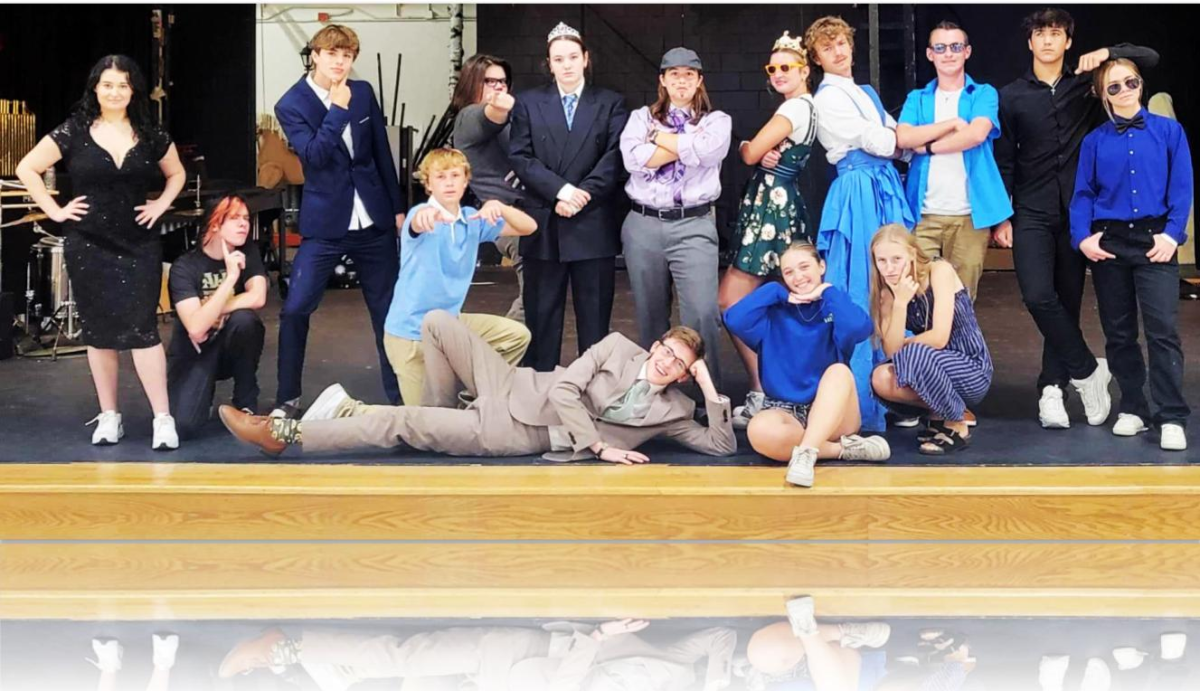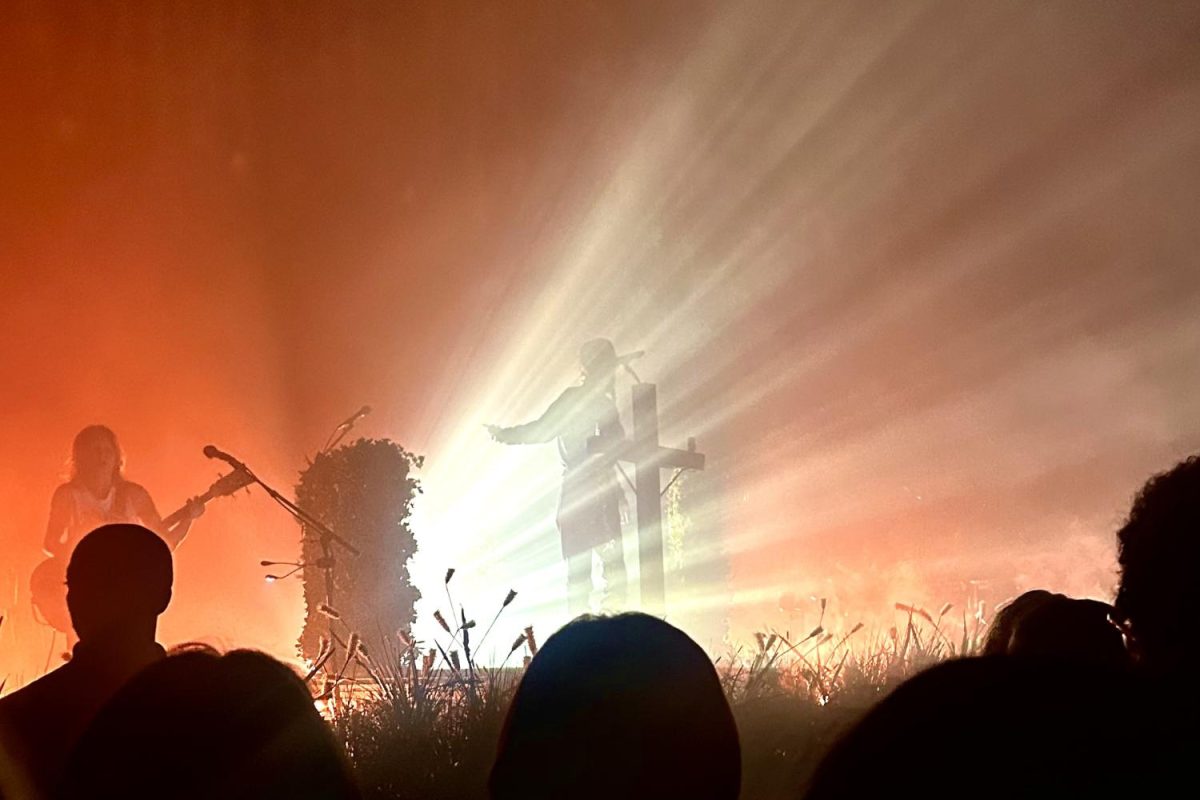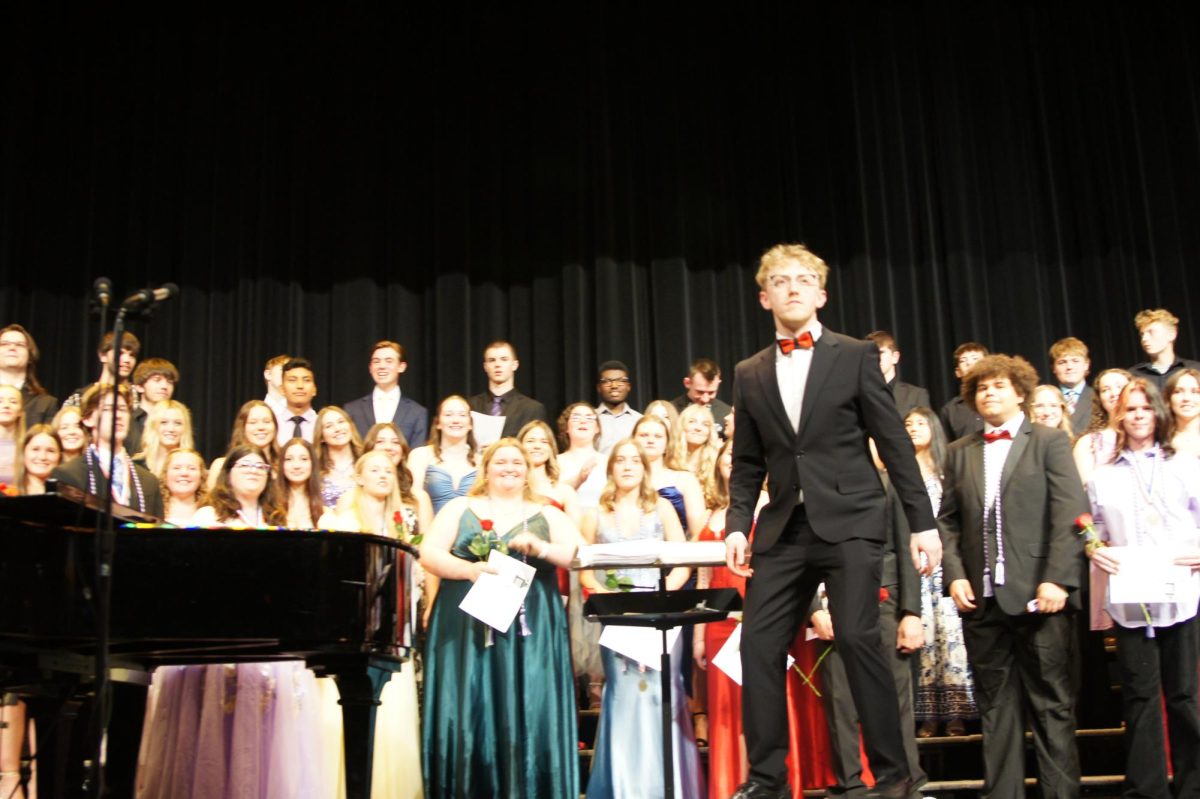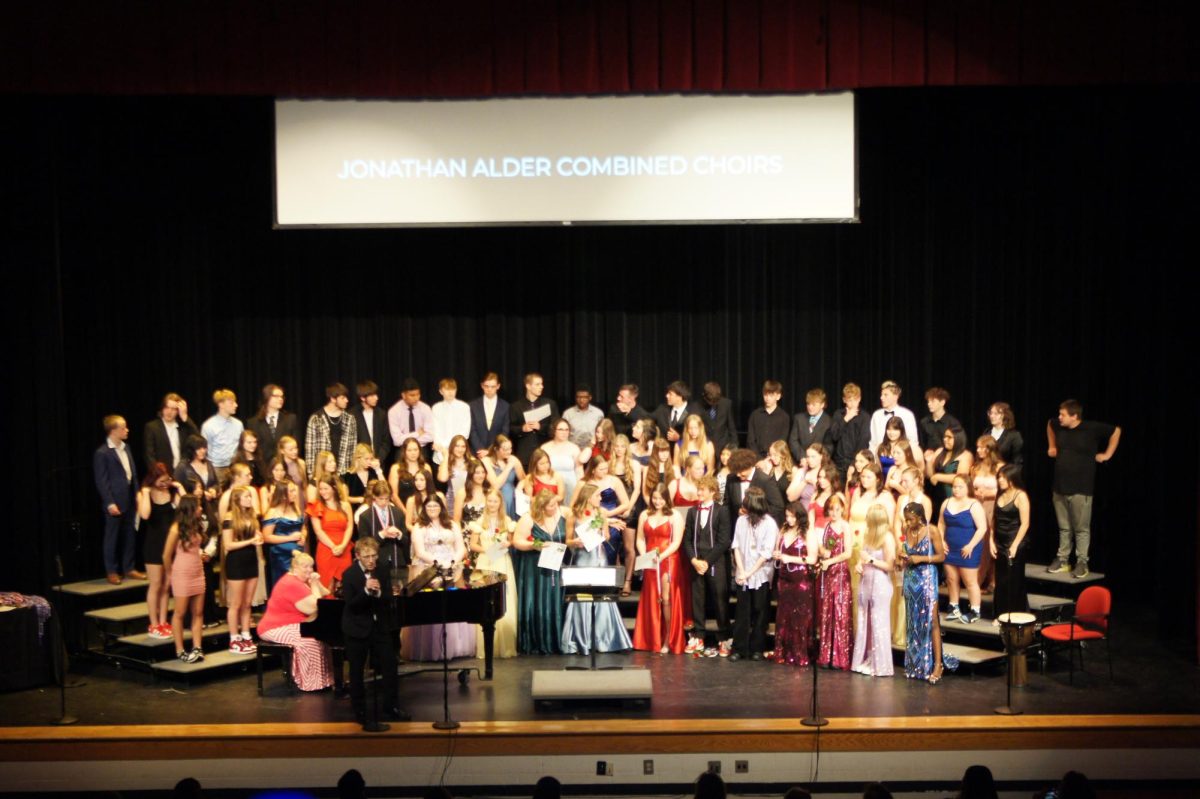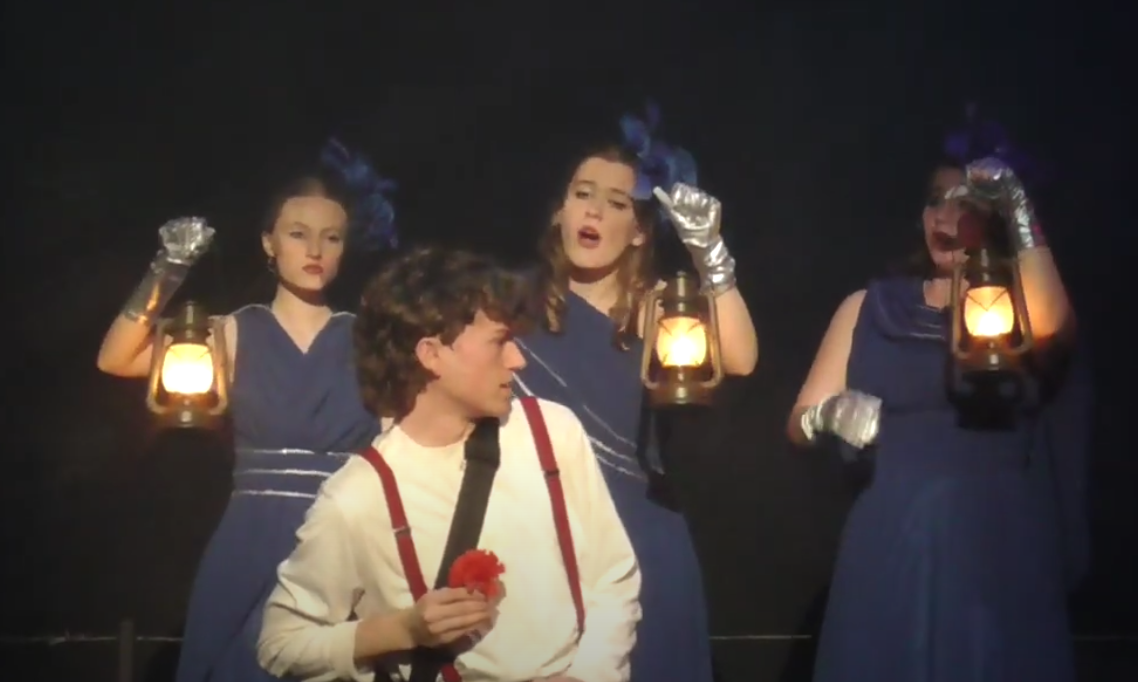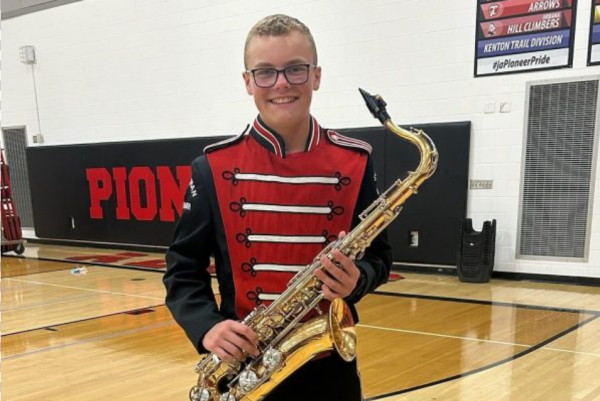Jonathan Alder’s show choir, a competitive choir which both sung and danced, has been replaced with the brand new a capella choir. Whilst they’re still going to be competing, it is going to be under a different category. Their season starts in January, and a schedule will be released soon. Auditions for next year’s a capella choir will be in spring of 2024.
Choir director Nicholas Mayes says one of the main differences between show choir and a capella is that every singer in a capella has a mic. “So a lot of people kind of think it’s like Glee or like Pitch Perfect. It kind of is,” says Mayes. “It’s this type of competitive choir that came out over the past 20 years or so and the goal is to create a song with no instruments, none whatsoever.”
Mayes also explains that the music style is different. “A capella typically does popular music…the songs could be anywhere from 6 parts all the way up to 12 parts. You typically have a soloist the entire song, and then you also have a vocal percussionist who does the percussive things in the background, basically a drum.”
The cause of the change for Alder from show choir to an a capella group was mainly fueled by the financial burden it placed on both the students and the directors. “It’s a very expensive entity,” says Mayes. “Not only are we paying a lot just as a department, but individuals pay a lot. So that was one of the conversations–that a capella is not nearly as expensive because you’re not paying for song rights, building a set, these expensive costumes.”
Some of this financial responsibility increased after the COVID-19 pandemic, especially in order for Alder to try and keep up with other programs. “Show choir has kind of changed ever since COVID,” says Mayes. “It’s either you are investing a lot of money and a lot of time or you’re not. And, it’s a very competitive world.”
The show choir season, which was determined by the competition circuit, also overlapped with Alder’s musical rehearsal season, an activity which many show choir members were also involved in. A capella choir season does not have as much of this overlap. “I chose to suggest a capella because we also put a lot of love into our musical,” says Mayes. “And a capella, in my mind, would work better in tandem with musical.”
Mayes himself says he grew up in “the a capella world,” and that the environment there is generally more positive than what he experienced with show choir. “They are very similar to show choir,” he says, “but it is…one of the most positive things, positive communities we could be a part of. And so I do think as sad as it is do to this change, there’s a lot of positives that come with it.”
It is important to note that Mayes left the decision to his students, and many of them shared his views. Senior choir member Joel Mitchell says, “It took me a while to get used to it. But I worked with Mayes and everything and we talked it all through, and I’m really excited.”
Freshman Allison Moran, one of the only a capella choir members to have not been in show choir, says,“I was a little annoyed. Show choir was something that a lot of people really wanted to do, a bunch of my friends were planning on doing it. So now they’re like oh, I didn’t get to do it so that was a bit disappointing. But, it was not crushing.”
Overall, the a capella choir has been very well received. Everyone involved is very excited to begin working on their shows, and are highly looking forward to a new style of singing. “I feel a lot of openness from everybody who’s in the a capella choir,” Mayes says. “There’s a lot of crossover from who was in show choir last and a lot of positivity to make it work and have fun with it.”

